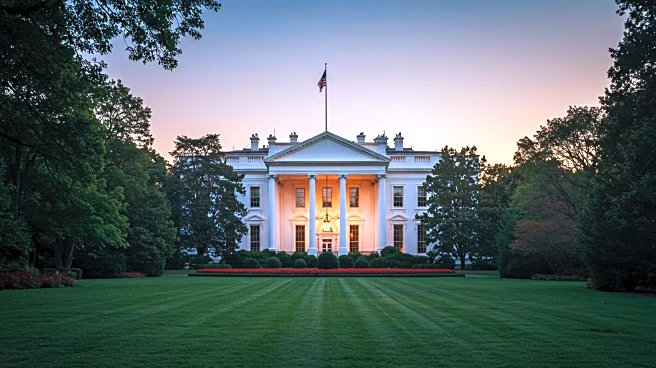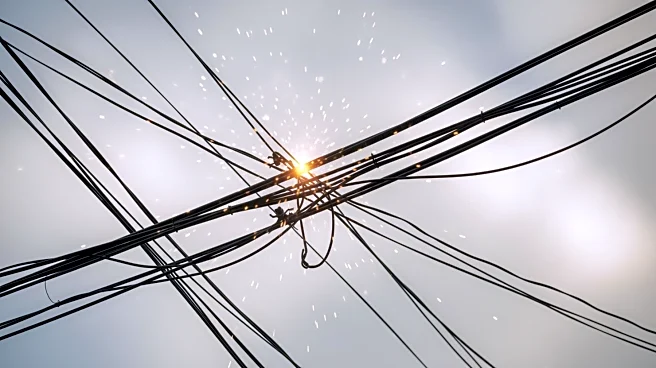What is the story about?
What's Happening?
European leaders, including European Commission President Ursula von der Leyen, are set to join Ukrainian President Volodymyr Zelensky for a meeting with U.S. President Donald Trump at the White House. This meeting, scheduled for Monday, follows a recent encounter between Trump and Russian President Vladimir Putin in Alaska, where no significant progress was made towards a peace deal. The upcoming talks aim to address ongoing tensions and explore potential resolutions to the conflict involving Ukraine. The meeting is part of a broader effort by European leaders to demonstrate unity and support for Ukraine, with French President Emmanuel Macron and UK Prime Minister Keir Starmer expected to participate via videoconference. The visit comes amid concerns from European allies about the nature of Trump's interactions with Putin, particularly after a previous meeting between Trump and Zelensky ended in a heated argument over U.S. aid to Ukraine.
Why It's Important?
The meeting at the White House is significant as it represents a concerted effort by European and U.S. leaders to address the ongoing conflict involving Ukraine. The involvement of high-profile European figures underscores the importance of transatlantic cooperation in seeking a resolution. The outcome of these talks could have substantial implications for international relations and the geopolitical landscape, particularly in terms of U.S.-Russia relations and the stability of Eastern Europe. The stakes are high for Ukraine, which seeks continued support from Western allies, and for President Trump, who faces scrutiny over his diplomatic approach with Russia. The meeting could influence future U.S. foreign policy decisions and impact the dynamics of international alliances.
What's Next?
Following the meeting, stakeholders will likely assess the outcomes and determine the next steps in the peace process. European leaders may continue to engage diplomatically to ensure their interests and those of Ukraine are represented. The U.S. administration may face pressure to clarify its stance on aid to Ukraine and its broader strategy in dealing with Russia. The international community will be watching closely for any shifts in policy or new agreements that could emerge from these discussions.
Beyond the Headlines
The meeting highlights the complex interplay of international diplomacy, where national interests, alliances, and geopolitical strategies converge. It raises questions about the balance of power and the role of the U.S. in global conflict resolution. The involvement of multiple European leaders also reflects the broader implications for EU-U.S. relations and the importance of maintaining a united front in addressing global challenges.
















